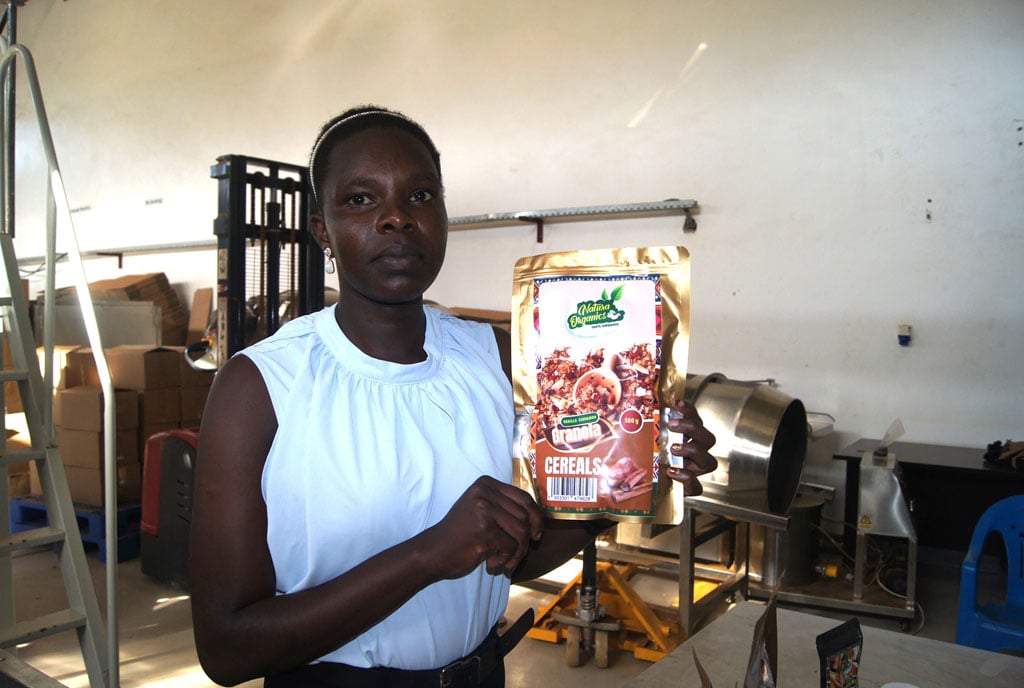
Java House CEO Priscilla Githungu speaks during the 10-year anniversary of the specialist coffee house in Uganda. Photo/George Katongole
Ugandan farmers and businesses are proving to be a critical growth engine for Kenyan restaurant chain Java House, as the company celebrates a decade of successful operation in Uganda.
Esther Miremba, regional procurement manager for Uganda and Rwanda, emphasised the strategic importance of understanding the Ugandan market.
Java House is deeply invested in the country’s agricultural success. While their roast coffee and pastries are renowned, their signature katogo dish showcases their commitment to local produce. “Our signature dishes like katogo beef and luwombo are not only popular, but also made entirely with locally sourced ingredients,” she stated.
Supporting coffee farmers
Java House sources their Arabica beans from the famed Kigezi in southwestern Uganda areas of Kisoro, Kanungu, Kabale and Rukungiri, known for their abundant, high-quality coffee. In-house experts then roast these beans to perfection, ensuring each cup delivers a rich, bold taste of Ugandan coffee.
The flavour profile of Arabica coffee from Kigezi is typically smooth with bright acidity, floral aromas, and hints of citrus or berries. Volcanic soil adds a subtle mineral note making it a favourite among coffee connoisseurs.
Coffee farmers, many of them women, cultivate organic Arabica beans on a portion of their land. This sustainable approach allows them to achieve a dignified living while protecting the environment and fostering community development.
Coffee is a crucial income source for these farmers, enabling them to invest in their children’s education. Additional investment programmes further empower these communities by providing essential resources like seeds and technical support, specifically targeting women who make up a significant portion of the coffee-growing workforce.
Java House is innovating by adding value to its coffees in a new product called cold brew coffee.
Unlike traditional hot brewed coffee, cold brew is made by steeping coarsely ground coffee beans in cold water for an extended period, typically 12-24 hours. This slow extraction process results in a coffee concentrate that’s less acidic and bitter than its hot-brewed counterpart. The lower acidity translates to a smoother, richer flavor profile, often described as having hints of chocolate and sweetness.
Cold brew’s low acidity makes it easier on sensitive stomachs, a welcome relief for coffee lovers who experience discomfort with traditional coffee.
But coffee isn’t all. Java House takes pride in sourcing 99 percent of its ingredients locally. From Biyinzika chicken to fresh beef, milk, potatoes, and tea, Ugandan suppliers play a vital role in their menu. Even their packaging materials come from Ugandan sources.
“Local sourcing isn’t just an accident, it is intentional. We want to grow alongside Ugandan farmers. Our growth is because Ugandans are able to afford our products,” says Miremba.
Competition
Founded in 1999, Java House has established a presence in high-end locations like Lugogo, Amber Court, and Acacia Place, fostering a family-friendly atmosphere.
While facing stiff competition from Cafe Javas (a past trademark rival), KFC, Chicken Inn, and local eateries, Java House thrives by leaning on Ugandan suppliers for a mammoth 99 percent of their ingredients. This focus on local sourcing isn’t just about freshness; it’s a strategic partnership that fuels their expansion plans.
“We shall continue to innovate as a company and deliver products that customers want,” she says.
Though they’ve encountered challenges, with closures in Bugoloobi and Kamwokya, Java House remains optimistic.
Africa’s allure for global restaurant chains is undeniable. A combination of rising disposable incomes, booming economies, and a youthful population with busy lifestyles creates a perfect storm for growth in the on-the-go food market.
But Java House isn’t just about the food. Gathungu highlights their unique company culture, where many team members rise from entry-level positions like waiter or cashier to leadership roles. This people-centric approach fosters a strong team and is central to their success in Uganda.
“We shall continue to innovate as a company and deliver products that customers want. We are passionate about developing something that Ugandans would embrace,” said Gathungu stressing their focus on clientele and local talent.

